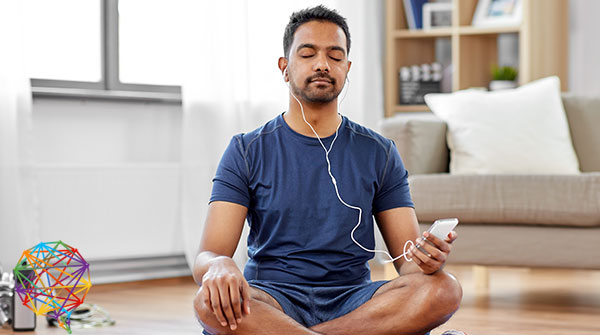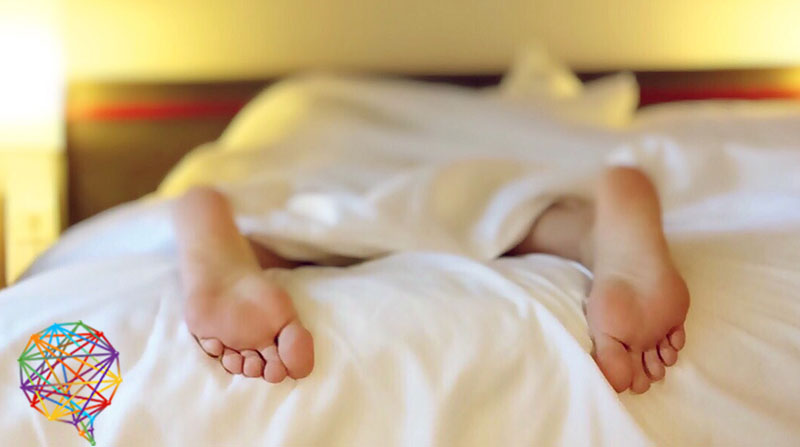13 strategies to help you relax and relieve stress.

Experiencing stress is a normal part of life. It is how the body and brain react to any change requiring an adjustment or response. The body reacts to these changes with emotional, physical, and mental responses.
Stress comes from external and internal factors. A stressor may be a one-time or short-term episode, or it can happen continuously over a period of time. Everyone copes with stress differently, some more effectively and quickly than others.
Stress can affect your health. It is important to pay attention to how you cope with stressors.
Acute Stress
Acute stress is short-term, and the reaction to an immediate threat. It triggers the fight/flight area of the limbic system called the amygdala. This is also called the fight/flight response. The threat can be any situation that is experienced, even subconsciously or falsely, as a danger.
Acute stress causes the feeling of anxiety, resulting in an increase in cortisol to your system. Acute stress includes a traumatic event such as 9/11, the death of a loved one, an illness, or the loss of a job.
Common acute stressors include:
- Noise
- Lights
- Traffic
- Crowds
- Isolation
- Hunger
- Illness
- Infection
- Touch
- The closeness of another person (proxemics)
- Weather change
- Imagining a threat or remembering a dangerous situation or event.
Under most circumstances, once the acute threat has passed, the responses become inactive and the level of cortisol is decreased and the body returns to a normal relaxed state.
Chronic Stress
Chronic stress results from being continually exposed to a situation(s) that release stress hormones. It is a constant state of feeling overwhelmed, anxious and experiencing fight/flight. It includes the loss of a job or home, going through a divorce, dealing with cancer or another chronic illness. It is a feeling of loss of control and security.
Signs of stress include:
- Feeling overwhelmed, unmotivated, or unfocused.
- Feeling on edge.
- Apathy, lack of energy.
- Trouble making decisions and/or making bad decisions.
- A change in sleeping or eating habits.
- Increased crying or anger spells.
- Using alcohol or drugs to relieve stress.
- Depression or anxiety.
- Irritability/restlessness.
- Racing thoughts or constant worry.
- Muscle tension.
- Heart palpitations.
These are all indicators you may be dealing with higher levels of stress than usual. While there are many ways to lessen the effects of a stressful lifestyle, we can all benefit from learning new strategies to immediately relieve stress when it hits.
13 Stress-Reducing Strategies
1. Take a break.
One of the simplest ways to combat stress when levels run high is to take a breather. Whether that means refocusing your attention on slow breathing, going for a walk or run, or taking part in something you enjoy doing, it’s important to be mindful of stress responses in the body and interrupt stressful situations when possible.
2. Retreat to nature.
Getting in a dose of fresh air and sunshine can quickly relieve stress levels. Take a trip to the backyard and enjoy the sounds of the leaves rustling and birds chirping, bring a picnic to a local park or find a hiking trail.
3. Deep breathing.
Due to our inherent fight-or-flight response, stress can cause shallow breathing, leading to feelings of chest tightness. Slow, deep breathing disrupts this stress response. Focus on the expansion and compression of your belly and diaphragm and aim for a few deep breaths per minute.
4. TFT tapping.
Developed by Roger Callahan, Thought Field Therapy (TFT) is a meridian-based, mind-body therapy. TFT is based on the idea that thought produces a specific electrical field and by tapping on various acupuncture meridian points in a specific sequence, the energetic source of a problem can be neutralized or eliminated. TFT tapping uses a combination of acupressure and affirmations to relieve stress. This can be a simple way to refocus your attention and introduce moments of mindfulness to your life. I feel very blessed that I was personally trained by the originator in this method.
5. Situation reframing.
It’s easy to lose perspective during stressful times. Instead of being disappointed about being unable to leave the house, try reframing the situation by recasting it as a conscious decision. For example, you might say: I am choosing to protect myself and others by staying inside. Regaining a feeling of control over a situation can quickly ease feelings of anxiety.
6. Practice gratitude.
Take a moment to note some things you are grateful for and how they make you feel. It’s easy to lose sight of the value of supportive friends or your family’s health when stressed out.
7. Write it down.
Writing about feelings is cathartic. Let your thoughts flow without judgment. No one will read this but you. Writing can decrease rumination (repeated dwelling on certain thoughts) and help you make sense of feelings.
8. Reach out to others.
Now is a great time to connect with others via phone or video chat. Check-in with friends and family or attend virtual support groups. Though apart, we are connected more than ever before through common experiences that we can share at the touch of a button.
9. Broaden your perspective.
You are not alone. Many people are having the same experiences as you. Share your struggles with others and offer to help out friends and neighbours if possible. Providing value to others can help you feel connected and get you out of your head.
10. Be kind to yourself.
Forgetfulness, lack of attention, and short-temperedness are all normal during times of stress. Forgive yourself for mistakes and move on. The next minute, hour, or day are all chances to start anew. As routines and social norms are upended, we can all benefit from less rigidity in our lives. And remember, we are all in this together – show compassion to others.
11. Bach Flowers.
(Bach flowers is not a typo – Google it!) These essences are a homeopathic remedy that uses frequencies emitted by flowers to decrease feelings of stress and anxiety. Different varieties of flower essences were found to match the frequencies of specific emotions. Bach Flowers does not interfere with medication.
12. Inner Balance by HeartMath.
Inner Balance uses a sensor to provide biofeedback, giving you direct insight into how your nervous system responds to your mental health in real-time. Use this in addition to the offered guided meditations and coaching to reduce stress.
13. Cranial Electrotherapy Stimulation.
FDA approved CES devices can help combat stress, anxiety, improve sleep and do not have any side effects. CES devices employs small currents of electricity for the treatment of stress and stress-related disorders, including depression, anxiety, and insomnia.
Summary
According to the American Medical Association, stress is implicated in 80% of all illness, and stress-related problems account for 90% of our visits to primary care physicians. There are many different approaches to stress management. These strategies will help you decrease your stress level the next time stress creeps in. Give these tips a try to finally breathe a sigh of relief.





Responses